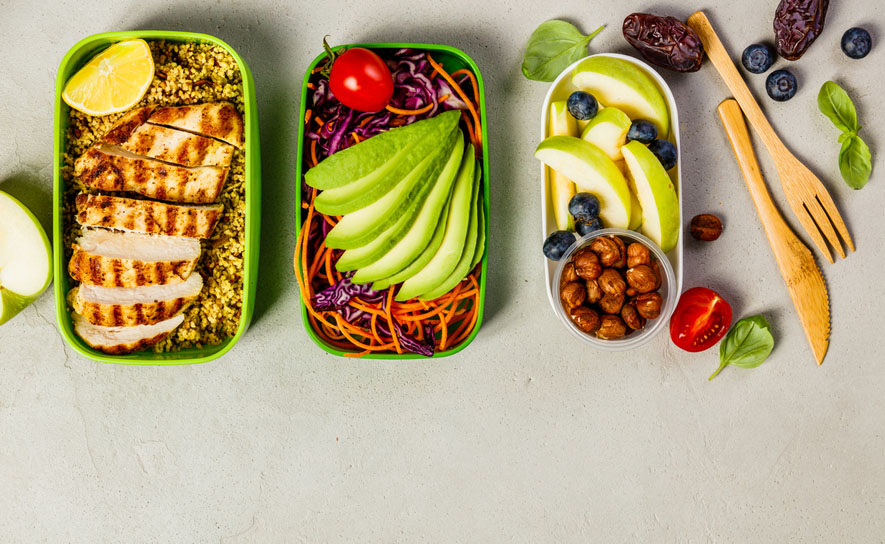USA Swimming News
The Best Nutrition Advice Often Begins with 'It Depends'

by Chris Rosenbloom PhD, RDN
When you ask a dietitian a simple question you want a simple answer, but you are more likely to hear, “it depends.” There is a good reason for that answer because dietitians look at a person’s eating pattern, workout intensity, and duration for the entire day week, or competitive season, not just a snapshot of the day.
Recently, a young swimmer emailed me to say that he works hard at his land-based and pool training but not so much on his nutrition. He asked three simple questions, but as you will see the answer is, “it depends.”
Question 1: What is a good pre-work out meal in the morning?
Answer: It depends on how much time there is between eating and your work out. Swimmers are encouraged to eat something in the morning after an overnight fast because their liver glycogen (carbohydrate stores) can be nearly depleted. Breakfast can also prevent hunger, which can be distracting, and can provide carbs for working muscles especially if stores were not replenished from the last workout. If there is only an hour before workout, aim for 0.45 grams of carbohydrate per pound of body weight. For a 150-pound swimmer that is about 65 grams of carbohydrate, the amount found in a 6-ounce carton of fruited yogurt and a slice of toast.
If you can’t eat breakfast before practice, eat 30 grams of easily digested carbs such as a small banana, 16-ounces of sports drink, or small energy bar to help improve performance for a long pool workout. However, not all energy bars are the same; study the ingredients and avoid those that are high in protein, fiber, or sugar right before a workout. Or, go for the energy bar “bites” or ½ a bar to get energy without ingredients to slow you down.
Question 2: What are some good snack options to eat throughout the day?
Answer: It depends on if you are eating regular meals, as in breakfast, lunch, and dinner, or you are a grazer, eating many small snacks throughout the day. Swimmers should time their snacks to complement their activity or recover from training. And, while there is room in your diet for “junk” foods, try to make your snacks count by giving you needed nutrition. Good snack choices include fruit (fresh, frozen, dried, canned, or in a pouch), peanut butter and fruit spread sandwiches, trail mix with nuts and dried fruit, an energy bar that delivers more quality carbs and fiber than sugar. Snacks can also be a good way to boost hydration; think of milk, hot chocolate, or soup to deliver both nutrition and extra water.
Question 3: What are some post-practice strategies for recovery?
Answer: It depends on your training or competition cycle; if you will be having a hard practice the next day, start recovery as soon as possible after getting out of the pool. Right after a glycogen draining workout your muscles are most receptive to taking up the carbs and protein from food. We call that the “window of opportunity,” so a carb-protein snack is a good choice. Low fat chocolate milk, string cheese and crackers, pretzels and hummus, chickpea snacks, or cereal and milk are all fine recovery meals.
If, after a hard workout, you are going to take a day or two off, then don’t worry about recovery foods, just eat your usual meal.
Of course, your smartest nutrition strategy is to work with a registered dietitian who specializes in sports nutrition to personalize a plan.
Chris Rosenbloom, PhD, is a registered dietitian nutritionist who has provided nutrition information to coaches and athletes for over 30 years. She welcomes questions from swimmers, parents, and coaches at chrisrosenbloom@gmail.com
